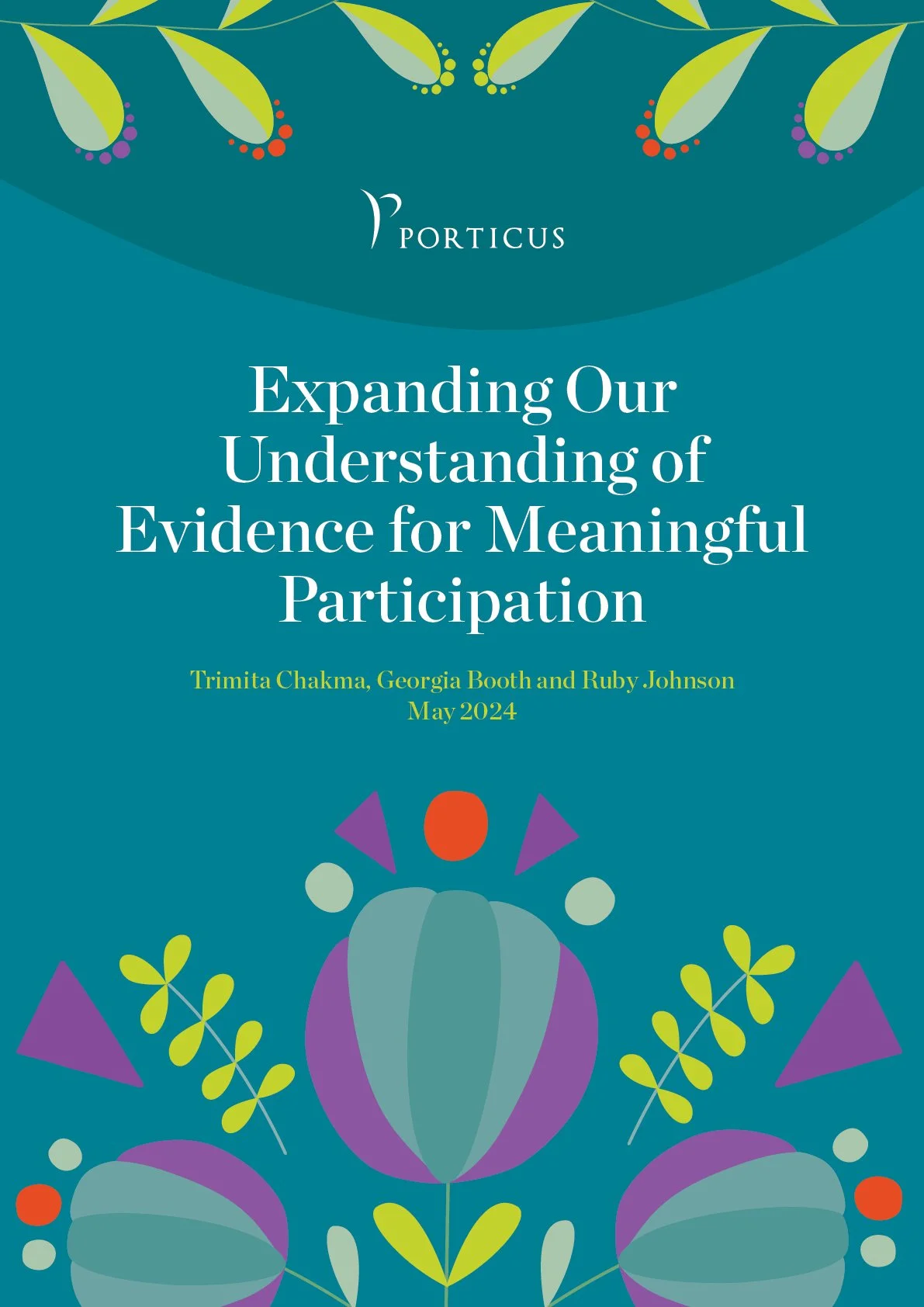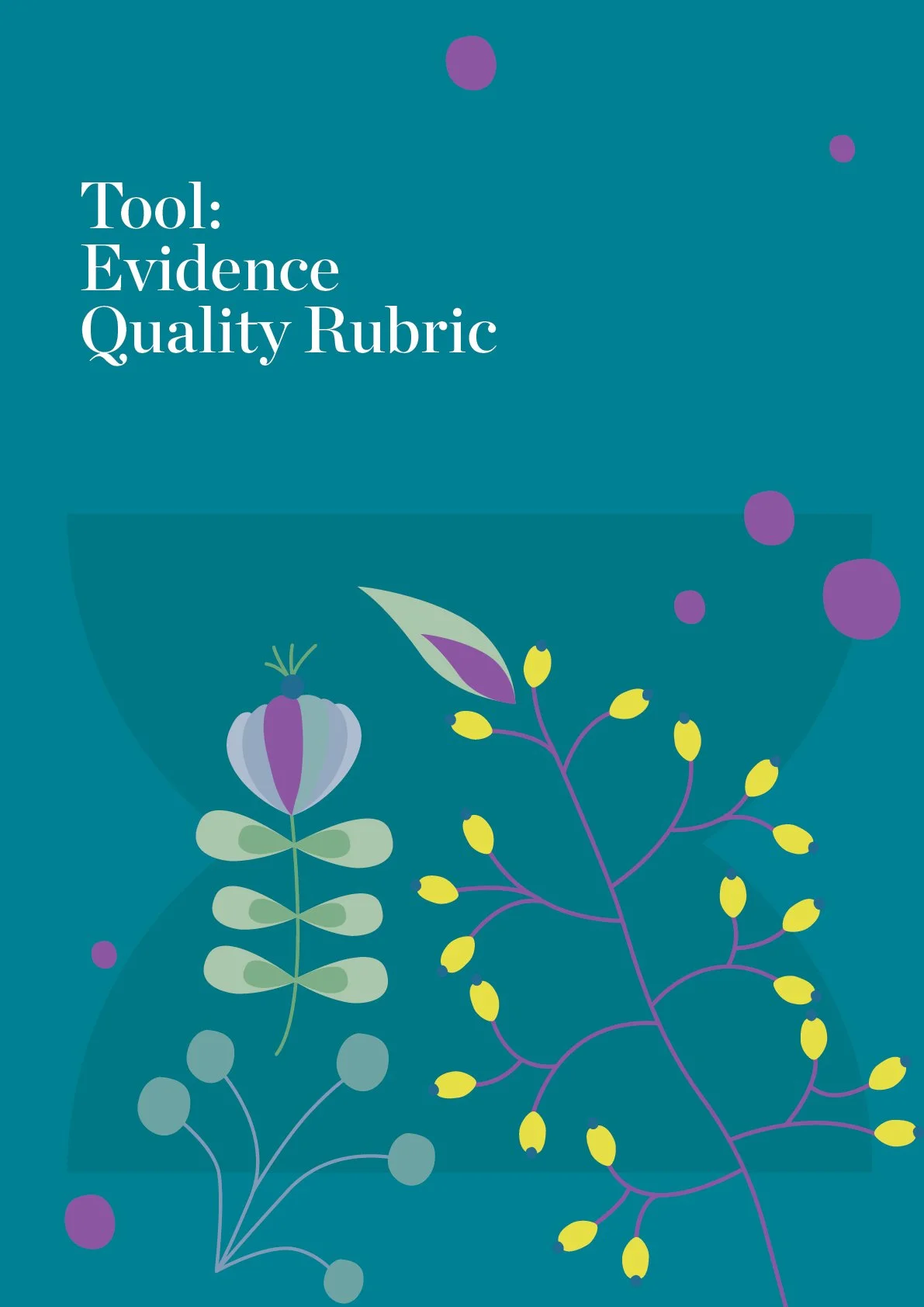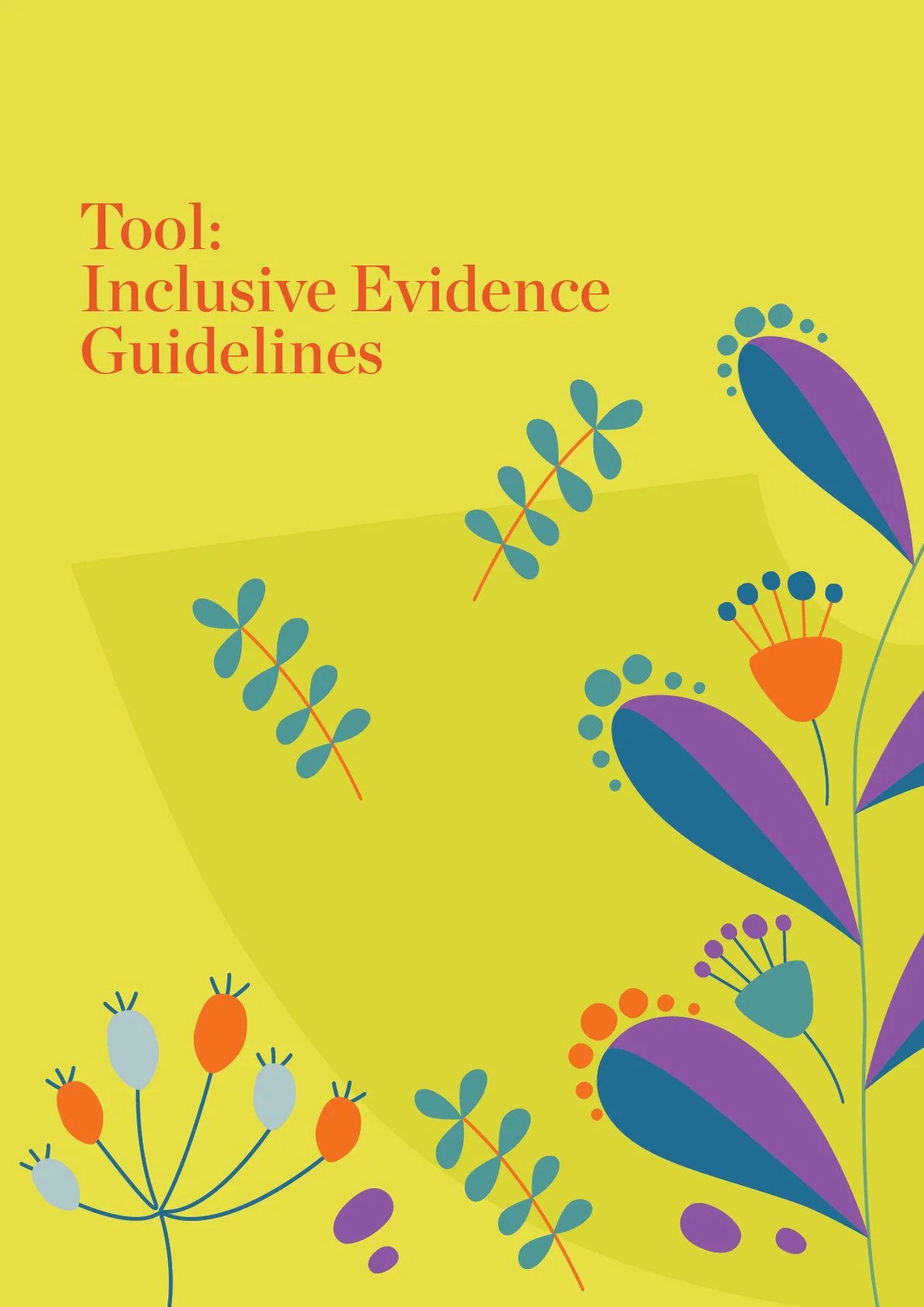
Expanding Our Understanding of Evidence for Meaningful Participation
This report aims to expand our understanding of evidence in two key ways. First, it explores and consolidates existing evidence that demonstrates the effectiveness of participatory approaches in contributing to social change efforts and transforming philanthropic practices. Second, it proposes a new tool for evaluating the quality of evidence in a more inclusive manner.
The research addresses three core questions:
Why does meaningful participation matter?
What should count as evidence of participation’s contribution to transforming philanthropic practices and broader social change?
What gaps persist in the current evidence base on the effectiveness of meaningful participation?
While there is a belief in the potential of participatory grantmaking to democratise philanthropy and transform power, the current evidence base needs to be strengthened to make such claims about its effectiveness.
Download tools…
We humbly share two tools that have emerged during the course of this research. We invite practitioners to engage with these tools and share feedback and reflections. They are living tools and we expect they will be expanded and adapted over time.
Evidence Quality Rubric
The Evidence Quality Rubric can be used to assess the quality of evidence related to meaningful participation in a more inclusive way, balancing conventional research standards with inclusion factors, such as representation, power analysis, and bias interrogation.
We offer this as we believe that the conventional standards of what constitutes “quality evidence” often privilege certain forms of knowledge while marginalising others, such as the perspectives and lived experiences of communities.
Inclusive Evidence Guidelines
The Inclusive Evidence Guidelines provide practical guidance for participatory
evidence gathering that reflects the priorities of affected communities. It includes five guiding principles to prompt reflection on voice, power, culture, knowledge forms, and accountability to communities when designing participatory documentation approaches.
Acknowledgements
This report was commissioned by Porticus and produced in partnership with Closer Than You Think Collective. Co-authored by Trimita Chakma, Georgia Booth, and Ruby Johnson, the report was conceptualized, developed and written in close collaboration with the Porticus 360 Philanthropy team and peer reviewed by five independent experts in participatory research, philanthropy, and feminist monitoring, evaluation, and learning.
Co-authors
Trimita Chakma is a feminist researcher and activist from the Indigenous Chakma hill tribe of Bangladesh. She draws on 15 years of experience in feminist movement organising and specialises in Feminist Participatory Action Research (FPAR). She has spearheaded dozens of feminist research projects across Asia, Africa, and the Pacific focused on advancing women’s rights, labour rights, climate justice and Indigenous Peoples’ rights. In 2022, she co-founded the FPAR Academy to promote education on feminist participatory methodologies.
Georgia Booth is a feminist activist and strategist from Ireland bringing over 10 years’ experience in programming, strategy design and influencing, specialising in girl and young feminist organising. She provides tailored support to organisations, UN agencies and funders, bringing technical expertise in girls’ rights, meaningful participation and gender justice.
Ruby Johnson is a feminist activist, researcher, practitioner and strategist fiercely committed to redistributing resources and power to intersectional social justice movements, in particular girls and young people. Ruby is Co-Founder of Closer Than You Think, an ideas studio and consultancy collective working at the intersection of activism, philanthropy, and art, she leads the Global Resilience Fund at Purposeful, a collaborative fund resourcing girls and young feminists responding to crises and works as an Independent Consultant accompanying organisations and funders on strategy, practice, and participation.
In collaboration with the Porticus team: Camila Jerico Daminello, Cica Scarpi, Dennis Arends, Douglas Calixto, Lucile Corman, Marat Yu, Nathan Koblintz, Rodrigo Bustamente, and Steffen Eikenbusch.
We also sincerely thank the five peer reviewers for generously providing invaluable feedback on the report draft to strengthen framing, analysis, tools and recommendations.
Alexia Pretari
Boikanyo Modungwa
Cynthia Gibson
Matt Jackson
Zoé VanGelder
We thank Katy Love and Diana Samarasan for their work on the Advancing Participation in Philanthropy Tool. The APPT has informed this research and is an important contribution advancing participatory philanthropy and practice.
We are deeply grateful to all those who engaged in supporting the shaping of this research. It would not have been possible without the generous contributions, time and insights from the funders, practitioners, partners and communities we engaged.

Return to












